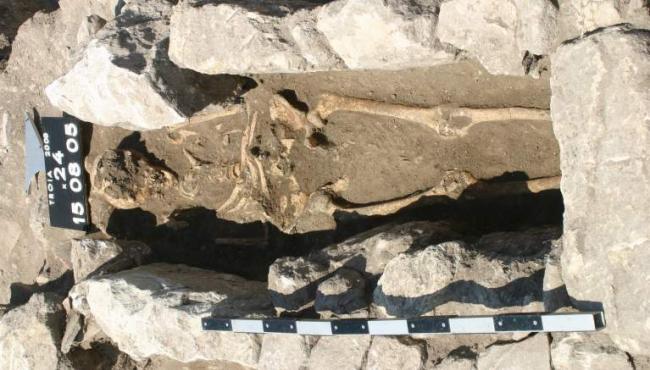Scientists discovered an 800-year-old skeleton of a woman. Two calcified nodules found at the base of her chest have yielded the complete genomes of two pathogenic bacteria.
Archaeologists who uncovered the woman’s remains noticed that her skeleton had nodules at the base of her chest that they initially suspected to be from a tuberculosis infection, but when the researchers opened the calcified nodules up, New Historian says they found preserved cells.
As the University of Wisconsin-Madison’s Caitlin Pepperell and her colleagues report in eLife this week, they teased S. saprophyticus and G. vaginalis DNA out of the abscesses. They reconstructed the ancient bacterial genomes and through a phylogenetic analysis, found that the ancient G. vaginalis sample was similar to modern strains. G. vaginalis is found in modern pregnancy-related infections.
In contrast, they found that the ancient S. saprophyticus sample belongs to a lineage that doesn’t cause modern human disease, but is more typically found among livestock. As people at the time lived in close proximity to domesticated animals, the researchers say the bacteria may have passed between livestock and humans.
The analysis also indicated that the woman, who was estimated to be about 30 years of age at her death, died of chorioamnionitis. Pepperell and her colleagues found ancient Y chromosome DNA among the woman’s remains, suggesting she was carrying a boy.















